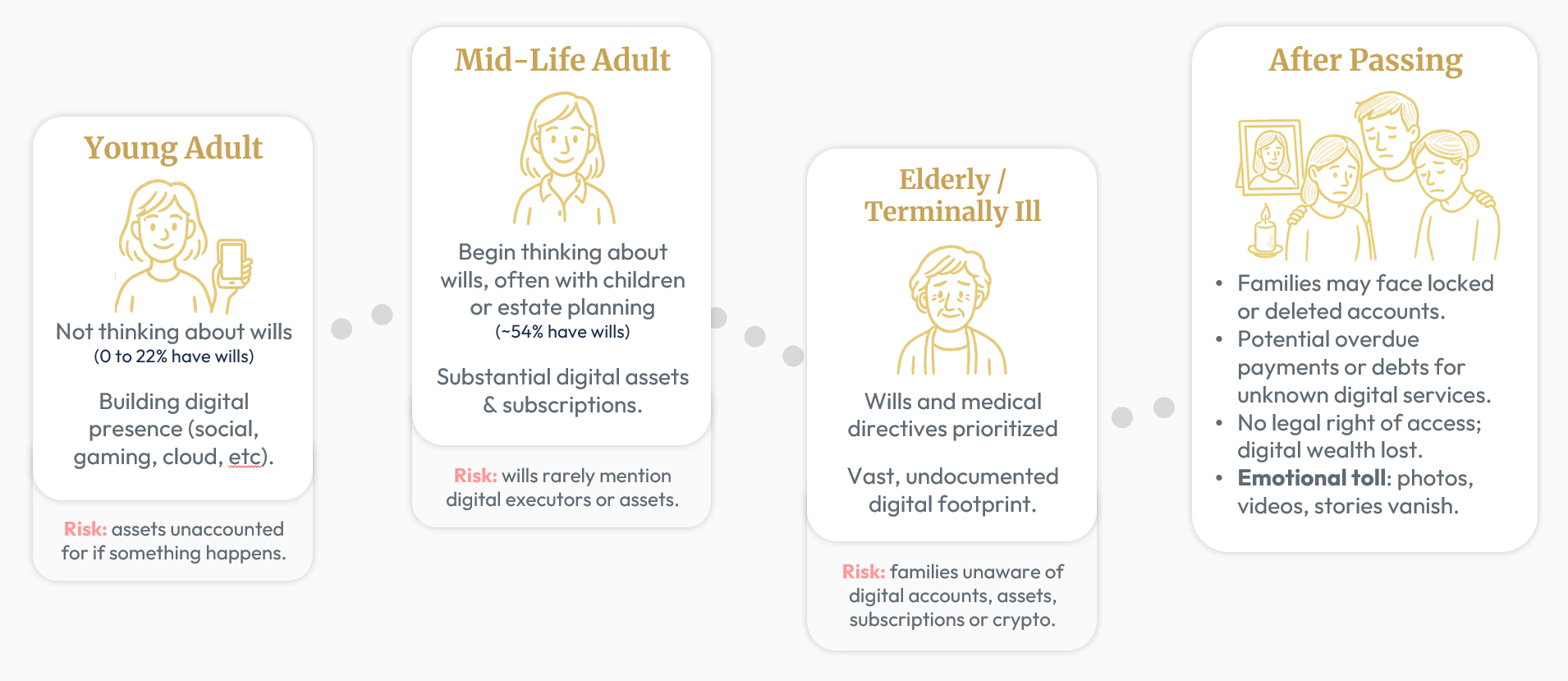
In a world where so much of our identity now exists online, death can mean more than the loss of life — it can mean the disappearance of a person’s digital world. Photos fade from servers, messages are locked away, and years of creativity, connection, and history can vanish without a trace.

In today’s connected world, a lifetime of memories, creativity, and relationships lives online. Yet when someone passes away, that digital life can vanish — locked behind passwords or hidden within company systems that families cannot reach.
At Forevermore, we believe every person deserves the right to decide what happens to their digital life — and every family deserves clarity, compassion, and access when a loved one dies.
We live in an age where memories, relationships, and even parts of our identity live online. Yet when someone passes away, their digital life often becomes trapped behind company policies and outdated privacy laws.
Families can be left without access to treasured photos, personal messages, or documents of emotional and cultural value. Executors face enormous challenges proving authority, while companies — often operating across borders — rely on terms of service written for users, not heirs.
This is not simply an issue of technology; it is one of dignity, compassion, and human continuity.
Ensuring that people can safely and ethically pass on their digital legacies honours the fundamental human need to be remembered — and ensures that what we create and share online can continue to connect generations.
Despite the scale of our digital lives, most countries, including Australia, lack clear laws defining how digital assets are treated after death.
This has created a patchwork of inconsistent rules, where:
Some jurisdictions, such as several U.S. states under the Revised Uniform Fiduciary Access to Digital Assets Act (RUFADAA), have taken steps to fix this. They provide a legal pathway for executors to manage digital assets much like physical ones.
Forevermore supports the adoption of similar reforms worldwide, to give individuals the power to plan ahead and families the right to fulfil those wishes.

Forevermore champions policy, practice, and technology reforms that uphold the following principles:
We advocate for:
Forevermore exists to protect the right to be remembered in the digital age. We advocate for ethical and compassionate management of digital legacies, ensuring individuals retain control over their online lives and that families are supported with clarity and dignity after a loved one passes.
Through research, education, and advocacy, Forevermore raises awareness about digital-legacy planning, engages policymakers to modernise inheritance and privacy laws, and encourages reform within the technology industry to promote transparency and responsible stewardship. Our goal is to close the gap between how technology platforms manage digital legacies today and what genuine, human-centred care should look like in the future.
